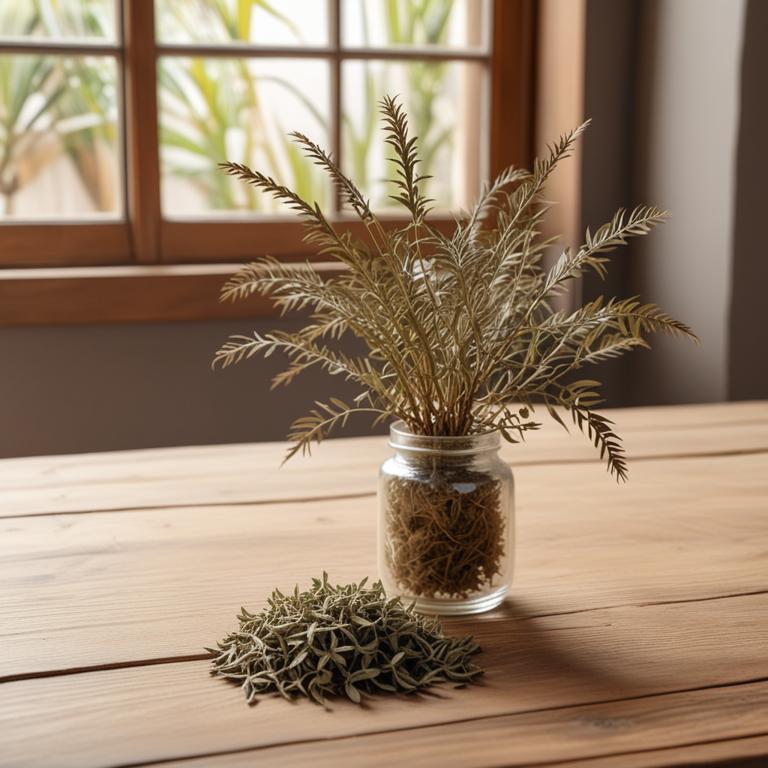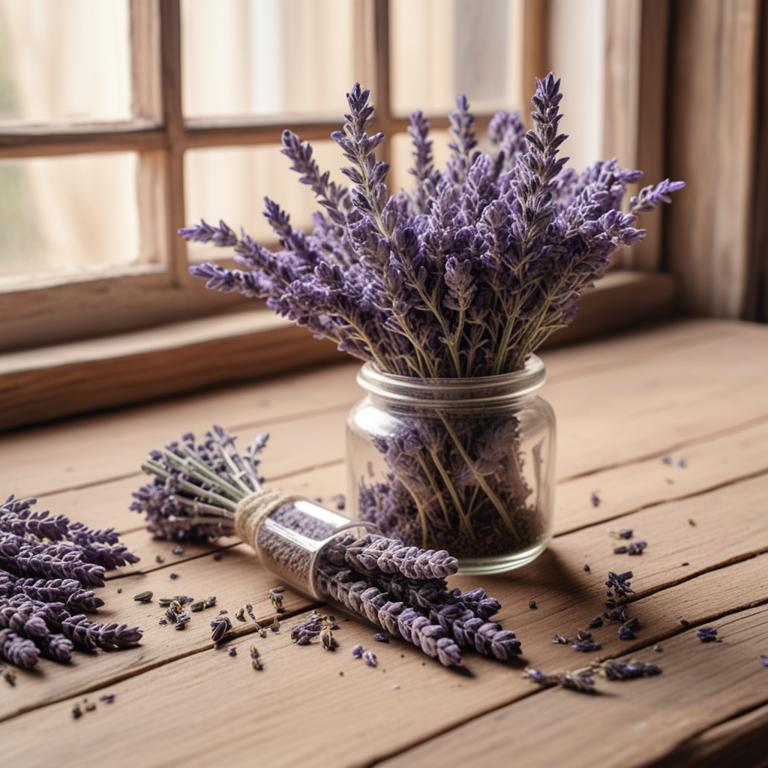Updated: Dec 1, 2024
Causes and Herbal Remedies for Psoriasis: A Comprehensive Guide
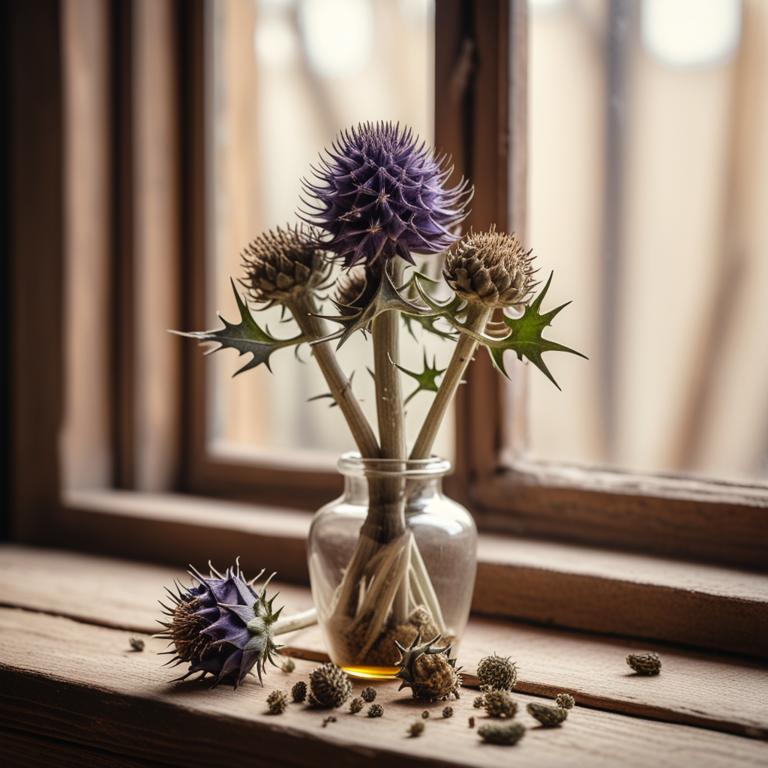
Psoriasis is a condition that causes red, scaly patches to appear on the skin.
It can be itchy, painful, and embarrassing, making everyday life a challenge. For people with psoriasis, even simple tasks like dressing or showering can be difficult. But what causes this condition?. The exact cause of psoriasis is still unknown, but doctors believe it's related to an overactive immune system, genetics, and environmental factors like stress. Herbal remedies have been used for centuries to help manage psoriasis symptoms.
Aloe vera, for example, is known for its soothing and anti-inflammatory properties, which can help calm itchy skin. Turmeric, a spice commonly used in cooking, contains a compound called curcumin that has powerful anti-inflammatory and antioxidant properties, which can help reduce redness and swelling. Chamomile and calendula are also popular herbal remedies for psoriasis, as they can help soothe and calm irritated skin. These herbs can be used in a variety of ways to help manage psoriasis symptoms. Aloe vera gel can be applied directly to affected skin, while turmeric can be made into a paste and applied as a mask. Chamomile and calendula can be made into teas, which can be consumed to help reduce stress and promote relaxation, a key factor in managing psoriasis symptoms.
Some herbal preparations, like creams and ointments, can also be applied directly to affected skin to help reduce inflammation and promote healing.
Table of Contents
- What are the root causes of psoriasis?
- What are the benefits of incorporating herbs into a psoriasis treatment plan?
- What are the main medicinal herbs prescribed for psoriasis?
- What herbal preparations have been traditionally used to treat psoriasis?
- What herbs should be avoided by people with psoriasis?
- FAQ
What are the root causes of psoriasis?
The main causes of psoriasis are a combination of several factors.
Genetics plays a significant role in psoriasis. If one of your parents has the condition, you're more likely to develop it too. This is because certain genes can affect how your body's immune system works, making it more likely to trigger psoriasis symptoms. Autoimmunity is another cause of psoriasis. In people with autoimmunity, their immune system mistakenly attacks healthy skin cells, causing inflammation and leading to psoriasis symptoms. This usually happens when the immune system gets confused and starts attacking the skin instead of fighting off infections. Skin injury can also trigger psoriasis in some people.
When the skin is injured, it can cause inflammation and lead to the development of psoriasis. This is often seen after surgeries, tattoos, or other skin injuries. Stress can also play a role in psoriasis. When you're under stress, your body releases hormones that can make your skin more sensitive and increase inflammation. This can trigger or worsen psoriasis symptoms. Infections, such as strep throat, can also trigger psoriasis in some people. When the body fights off an infection, it can cause inflammation and lead to psoriasis symptoms. Smoking is another factor that can contribute to psoriasis.
Smoking can reduce blood flow to the skin, leading to inflammation and making it more likely to develop psoriasis.
What are the benefits of incorporating herbs into a psoriasis treatment plan?
Using certain herbs can be beneficial for people with psoriasis.
These herbs have anti-inflammatory properties, which can help reduce redness and swelling on the skin. They can also soothe and calm the skin, reducing the feeling of itchiness and discomfort.
Some herbs may even have antiseptic properties, which can help prevent infections that can worsen psoriasis symptoms. Additionally, some of these herbs are known to promote skin cell growth, helping to repair damaged skin and reduce the appearance of scales. They can also help reduce stress and anxiety, which can trigger psoriasis flare-ups.
Some people find that using these herbs in the form of teas, ointments, or capsules can help manage their symptoms and improve their quality of life.
What are the main medicinal herbs prescribed for psoriasis?

If you're dealing with psoriasis, you might want to consider using some herbs to help soothe and calm your skin.
One of these herbs is Calendula officinalis, also known as marigold. It has anti-inflammatory properties that can help reduce redness and swelling in your skin, making it a great natural remedy for psoriasis. Aloe barbadensis, or aloe vera, is another herb that can be very beneficial for psoriasis. The gel inside the aloe leaf contains compounds that can help reduce inflammation and promote healing, which can help calm down psoriasis symptoms.
Urtica dioica, or stinging nettle, may seem strange for skin issues, but it has anti-inflammatory and antioxidant properties that can help reduce psoriasis symptoms. It can also help reduce inflammation and soothe the skin, making it a great natural remedy. Taraxacum officinale, or dandelion, is another herb that has anti-inflammatory properties that can help reduce redness and swelling in your skin. It also has antioxidant properties that can help promote healing and calm down psoriasis symptoms. Saponaria officinalis, or soapwort, is a herb that has been used for centuries to treat skin issues.
It has anti-inflammatory and antiseptic properties that can help reduce inflammation and prevent infections, which can help calm down psoriasis symptoms.
What herbal preparations have been traditionally used to treat psoriasis?
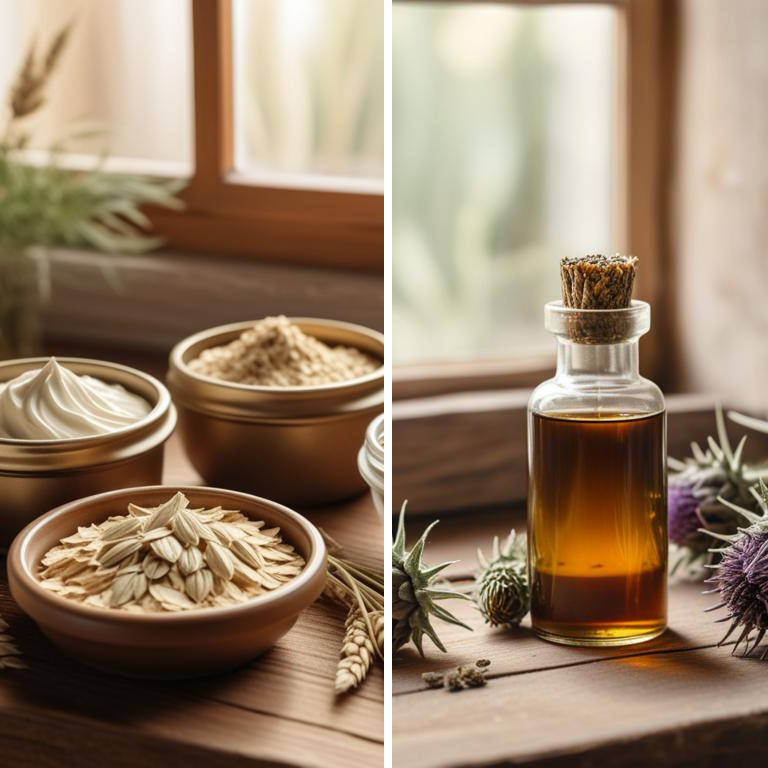
When it comes to managing psoriasis, herbal preparations can be a great option.
A cream made from aloe vera can help soothe and calm the skin, reducing redness and inflammation. A decoction of turmeric and ginger can be used as a warm compress to ease itching and discomfort.
A salve made from calendula can be applied directly to the affected area to promote healing and reduce scarring. Herbal tinctures, like those made from stinging nettle, can be added to bath water to help reduce inflammation and promote skin health. Some herbal capsules, such as those made from omega-3 rich flaxseed oil, can also be taken internally to help reduce inflammation from the inside out.
These herbal preparations can be used individually or in combination to help manage psoriasis symptoms and promote overall skin health.
Additional Resources:
What herbs should be avoided by people with psoriasis?
If you have psoriasis, it's essential to be cautious when using certain herbs.
Ginkgo biloba, for example, can cause an allergic reaction and make your skin condition worse. This is because it can increase blood flow to the skin, which might lead to more inflammation and irritation. Hypericum perforatum, also known as St. John's Wort, can interact with your medications, including those used to treat psoriasis. This means it could reduce their effectiveness or even cause side effects.
Silybum marianum, milk thistle, is often used to treat liver problems, but it can also have an effect on your skin. Some people with psoriasis may experience an increase in symptoms when taking it. Equisetum arvense, horsetail, is rich in silica, which can be beneficial for skin health. However, it can also cause an imbalance of minerals in your body, potentially leading to worsening of psoriasis symptoms. Cinchona officinalis, also known as cinchona bark, contains quinine, a substance that can trigger an allergic reaction in people with psoriasis.
This reaction can cause more inflammation and discomfort, so it's best to avoid it.
FAQ
Are there any specific herbs that can prevent psoriasis?
Some herbs that may help with psoriasis include turmeric, which contains a compound called curcumin that has anti-inflammatory properties.
Ginger is another herb that may help reduce inflammation and ease symptoms. Aloe vera gel has soothing properties that can calm irritated skin.
These herbs might help relieve psoriasis symptoms, but more research is needed to confirm their effectiveness.
Is it safe to use herbal remedies for psoriasis during pregnancy?
If you have psoriasis and are pregnant, it's a good idea to be cautious with herbal remedies.
Some herbs may help, but they can also cause problems. For example, stinging nettle can reduce inflammation, but it can also interact with other medications.
Always check the ingredients and talk to someone about any concerns you have.
Are there any herbs that can reduce the frequency of psoriasis?
Some herbs, like turmeric and ginger, have been studied for their potential to reduce psoriasis symptoms.
They contain compounds that may help calm inflammation and slow skin cell growth.
Aloe vera, another herb, is also thought to soothe and hydrate the skin, which can help ease psoriasis symptoms.
Related Articles
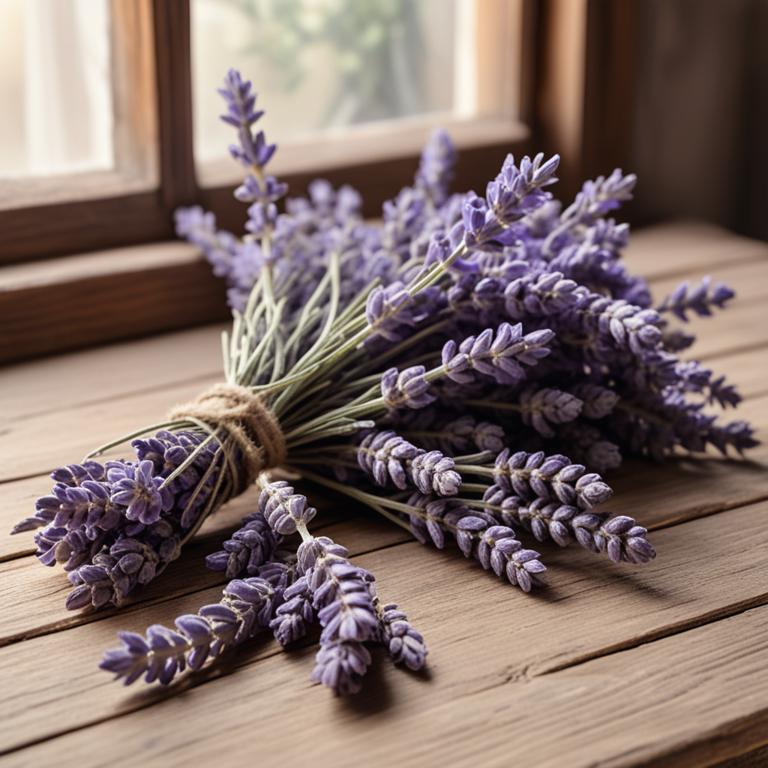
Natural Remedies for Foot Odor Using Medicinal Herbs
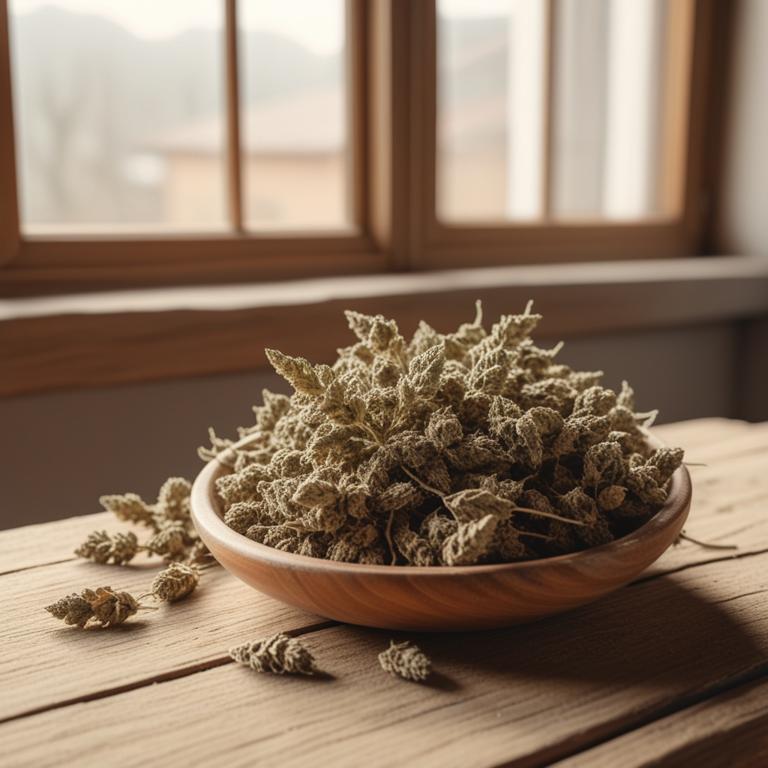
The Ultimate Guide to Itchy Skin Causes, Medicinal Herbs, and Treatments

Reddened Corners in Mouth: A Review of Medicinal Herbs and Herbal Preparations
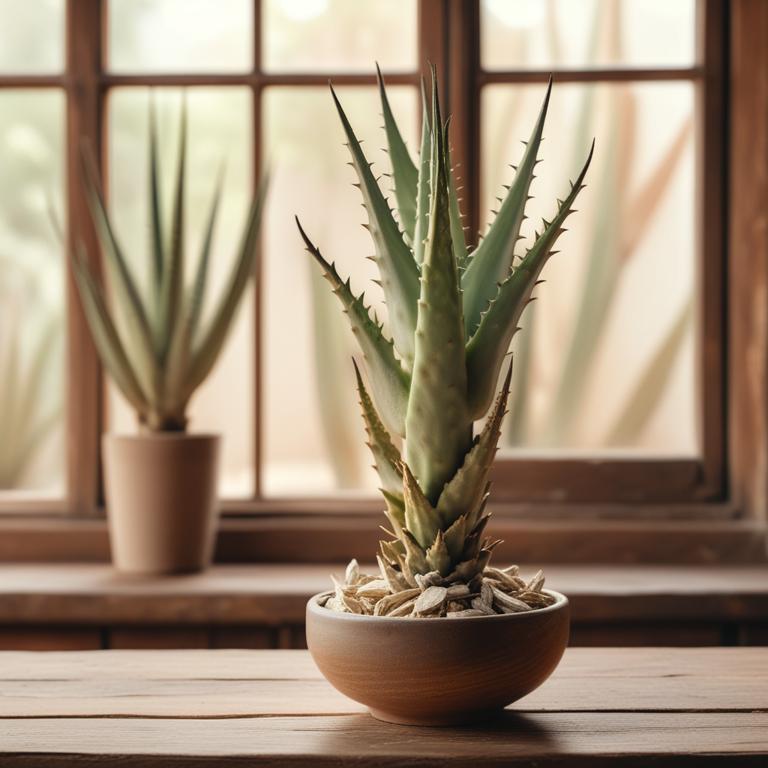
Glowing Skin: Causes, Medicinal Herbs, and Effective Herbal Remedies

Bruises: Causes, Symptoms, and Herbal Preparations for Relief




